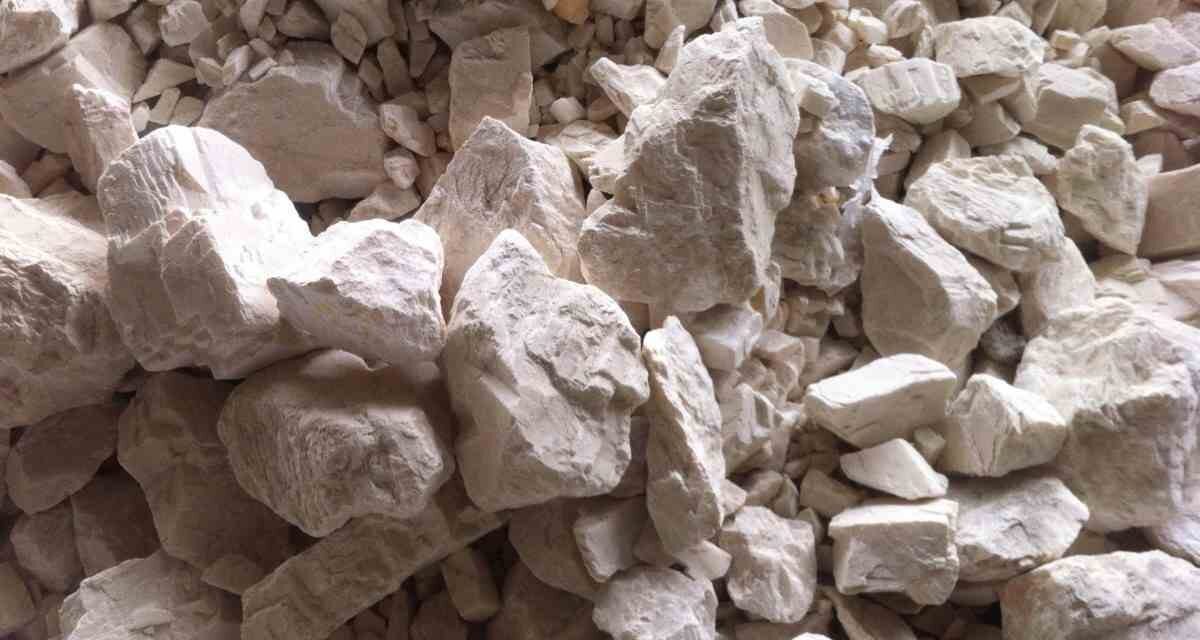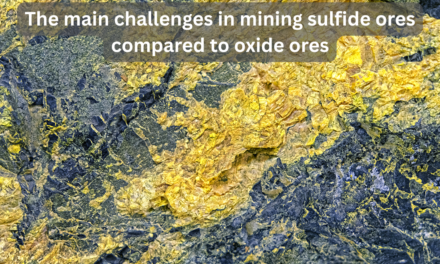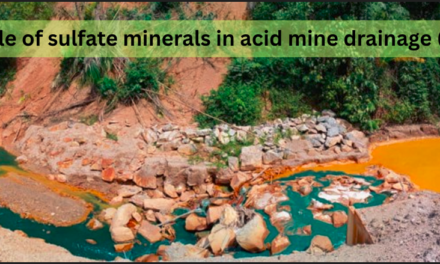Sulfate minerals, such as gypsum, barite, and anhydrite, play essential roles in several industries, including construction, drilling, and agriculture. Their unique chemical properties make them valuable for a wide range of applications. Below is an overview of how sulfate minerals contribute to these key industries.
1. Construction Industry (Cement & Plaster)
Gypsum (CaSO₄·2H₂O) is the most commonly used sulfate mineral in construction, primarily for producing cement and plaster products.
- Cement Production:
- Gypsum is added to Portland cement during its grinding stage to control setting time and improve workability. Without gypsum, the cement would set too quickly, making it difficult to handle and use in construction. The addition of gypsum regulates the hydration process of tricalcium aluminate (C₃A) in cement, preventing flash setting.
- Sulphuric acid (a byproduct of gypsum) can also be used in certain types of specialty cements, improving strength and durability for specific applications, such as in marine environments or sulfur-resistant concrete.
- Plaster Production:
- Plaster of Paris is made by heating gypsum to remove water, producing a fine powder that hardens when mixed with water. This material is used extensively in wall plastering, ceiling treatments, and mold making. Its lightweight and fire-resistant properties make it particularly suitable for interior finishes.
- Plasterboard (drywall) is another common product made from gypsum, used extensively in construction for wall and ceiling applications due to its ease of installation, soundproofing qualities, and fire resistance.
Environmental Benefit:
- Gypsum is a byproduct of various industrial processes, including the desulfurization of flue gases in power plants. This allows gypsum to be recycled and used in construction, contributing to sustainable building practices by reducing the need for virgin raw materials.
2. Drilling Industry (Barite in Oil and Gas)
Barite (BaSO₄) is a heavy, inert sulfate mineral with numerous applications in the oil and gas industry, particularly in drilling operations.
- Drilling Mud:
- Barite is primarily used as a weighting agent in drilling mud (also known as drilling fluid) to help control the pressure in the wellbore during drilling operations. The high specific gravity (4.3–4.5 g/cm³) of barite ensures that the drilling fluid can withstand high-pressure conditions found in deep wells, preventing blowouts and formation damage.
- By increasing the density of the drilling fluid, barite helps to prevent the influx of formation fluids (like gas or oil) into the well, thus ensuring the safety and efficiency of the drilling process.
- Environmental Considerations:
- While barite itself is non-toxic and inert, the use of drilling muds containing barite can have environmental implications if not properly disposed of. Proper disposal and recycling of spent drilling muds are essential to prevent soil and water contamination.
- Other Oilfield Uses:
- Barite is also used in other specialized applications, such as in cementing (to create dense cement slurries for well casing) and as a fluid-loss control agent.
3. Agricultural Industry (Gypsum and Other Sulfate Minerals)
Gypsum is particularly important in agriculture, where it is used as a soil conditioner and a source of plant nutrients.
- Soil Amendment and pH Adjustment:
- Gypsum is widely used to improve soil quality, particularly in alkaline or saline soils. It displaces sodium ions (Na⁺) from clay particles, which helps to improve the soil’s structure, making it more aerated and permeable. This increases water infiltration and root growth.
- By promoting the flocculation of clay particles, gypsum helps to reduce soil compaction, enhancing root penetration and nutrient uptake. This is especially useful in irrigated lands or areas with heavy clay soils.
- Nutrient Supply:
- Calcium sulfate (gypsum) is an excellent source of calcium (Ca²⁺) and sulfur (SO₄²⁻) for plants. Calcium helps to strengthen cell walls, improving plant stability and disease resistance, while sulfur is essential for the synthesis of amino acids and proteins.
- Gypsum is particularly beneficial in high-sodium soils (such as in irrigated areas), where it helps to displace sodium with calcium, thus reducing soil salinity and improving crop yields.
- Improved Crop Yield:
- In addition to improving soil structure, gypsum can be applied to improve the uptake of other nutrients, such as potassium and magnesium, through its action on the soil’s cation exchange capacity (CEC). This is particularly beneficial for crops such as corn, soybeans, and alfalfa.
- Sulfur Fertilization:
- Gypsum is a natural source of sulfur, an essential nutrient for plant growth. Sulfur is used in the synthesis of essential amino acids, enzymes, and vitamins, and is particularly important in crops like mustard, canola, and vegetables.
- Unlike elemental sulfur, which must be converted by soil microbes into plant-available forms, gypsum provides immediately available sulfate (SO₄²⁻) to plants.
Conclusion
Sulfate minerals, including gypsum, barite, and anhydrite, are integral to various industries due to their unique chemical and physical properties. In construction, gypsum is crucial for cement production, plaster, and drywall, contributing to building materials that are both effective and environmentally sustainable. In the oil and gas industry, barite plays a vital role as a weighting agent in drilling fluids, helping to ensure safety and efficiency during drilling operations. In agriculture, gypsum is used to improve soil quality, provide essential nutrients, and enhance crop productivity, particularly in areas with saline or alkaline soils.
These minerals are vital to both industrial processes and sustainable practices, with their widespread use helping to improve productivity and efficiency in several sectors. As industries continue to prioritize sustainability, the recycling and responsible use of sulfate minerals will remain essential for minimizing environmental impact and ensuring long-term resource availability.
Hashtags
#SulfateMinerals #CementIndustry #PlasterProduction #BariteMining #OilAndGasDrilling #AgriculturalMinerals #SulfateApplications #MineralResources #IndustrialMinerals #ConstructionMaterials #BariteForDrilling #AgricultureMinerals #MiningForIndustry #CementProduction #SulfateInAgriculture #DrillingMinerals #PlasterMaterials #SulfateInConstruction #SulfateIndustrialUses #MineralsInAgriculture







